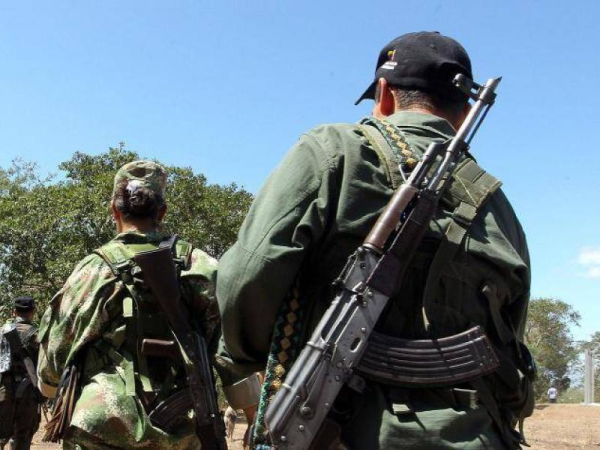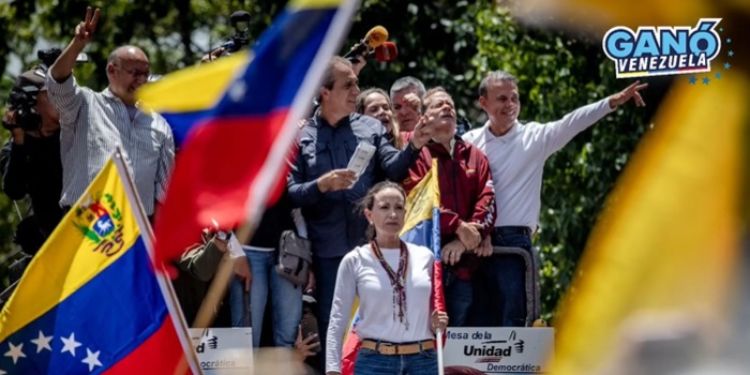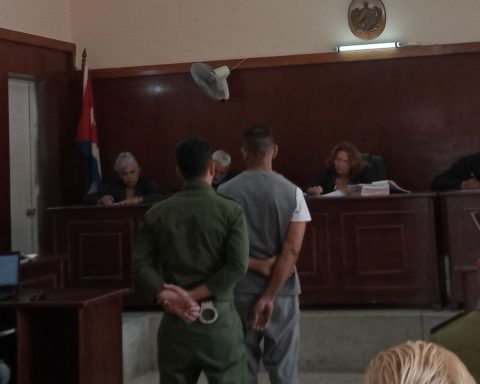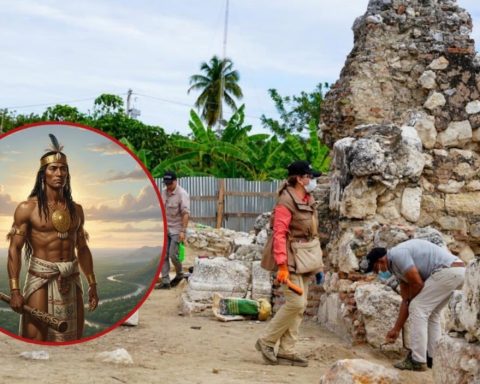The Colombian Ombudsman warned on Tuesday that the implementation of the peace agreement “moves at a slow pace”while expressing concern that violence continues and that between January and April of this year, 57 human rights defenders and social leaders were murdered in the country.
(You may be interested in: Will there be a 5×1,000 tax in the new tax reform project?).
This was stated by the Colombian Ombudsman, Julio Balanta, when presenting the ‘VI Monitoring Report on the Implementation of the Final Agreement for the Termination of the Conflict and the Construction of a Stable and Lasting Peace’, referring to the document signed between the Colombian Government and the demobilized FARC guerrilla in 2016 and its progress.
According to Balanta, in order to advance the State’s commitment to peace, it is necessary to strengthen the institutional architecture and draw up public policy lines.
“It is especially important that the entities responsible for complying with the agreement undertake to keep the progress of the indicators contained in the Implementation Framework Plan up to date, as well as to periodically record budgetary information associated with the execution of policies aimed at implementing the Agreement.”the report says.
The land problem
Balanta stressed in his presentation that “There is still a lack of clarity in the figures, as there is a huge disparity in the information provided on the same point and there is no progress in the characterization of the properties to facilitate their allocation”.
(We also recommend: Dr. Simi’s pharmacies will arrive in Colombia: these are their plans and their business model).
As an indicator, he said that of more than 1,500 properties that the Colombian Federation of Cattle Ranchers (Fedegán) has offered to the State, the Government has only purchased 26. He added that of the 21,132 properties available to the Government, only 37.84% have been awarded..
When referring to the ethnic route of land restitution, this has not made much progress because “There are 16,995 pending applications for microtargeting, of which 80% correspond to older adults”.
Ombudsman’s Office
Ombudsman’s Office
Violence persists
The defender also expressed his concern that violence continues: “Risk scenarios persist for leaders and human rights defenders to carry out their work: there is a record of 57 cases of homicides between January and April 2024”.
For the official, it is clear that if there is no security in the country, especially in rural areas, there can be no agrarian reform, no substitution of illicit crops, no restitution of lands and no return of the displaced population.
Along these lines, he considered that for any person to be able to exploit the land that has been handed over or returned, “it is necessary that security conditions allow it” and that government entities must guarantee them.
Transforming the territories
For his part, the Minister of the Interior, Juan Fernando Cristo, He acknowledged that there are delays in the implementation of the peace agreement and called on all sectors to join forces to make progress in this area.
“We are stuck in the implementation of the peace agreement as a State, as a society,” he said, referring to the Ombudsman’s report.
(Besides: Why the Mayor’s Office of Bogotá did not apply to the Government’s program to fight hunger).
However, he said that the government of Colombian President Gustavo Petro is clear that it will continue working to ensure that peace continues to advance and improve the lives of people affected by violence, who number more than seven million living in 170 municipalities.
“It is about transforming the territories of the 170 PDET municipalities (Territorial Development Programs) if we want to advance in peace and security. If we are not able to do so, we will not make sufficient progress in peace.”said Christ.
PDETs are a management and planning instrument of the Colombian Government to promote economic, social and environmental development in the areas of the country most affected by the armed conflict.
EFE

















